Rewind to Issue #105 of Singletrack Magazine for our racebike grouptest with the Trek Procaliber 9.8 SL.
Trek has been heavily involved in cross-country racing for years. It has been one of the biggest race teams on the cross-country World Cup circuit, and has had some of the legends of cross-country racing on their roster. Their current team includes Emily Batty and Sergio Mantecon – cross-country racing definitely runs strongly in their corporate blood!
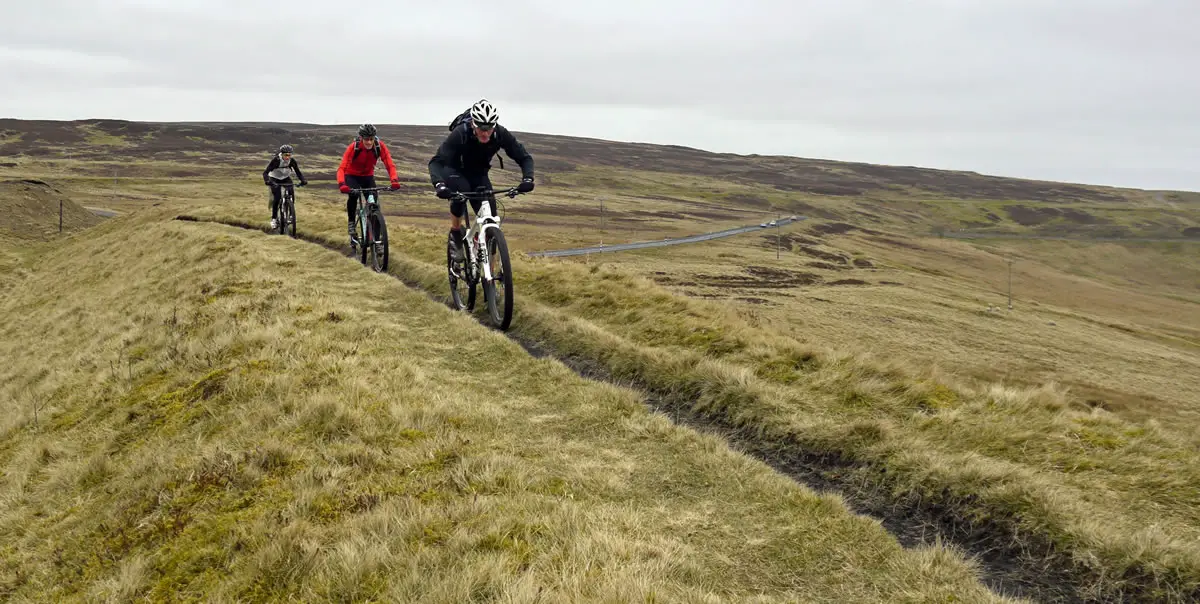
My first impression of the Procaliber 9.8 SL is that it looks like a ‘proper’ cross-country race bike – sloping top tube, short stout headtube and clean lines. The baby blue (Gulf Racing?) paint scheme polarised opinion somewhat among the testers. Our test rig is the 9.8 SL version, which is one down from the top of the range. It comes with 1×11 drivetrain, RockShox SID SL forks, DT Swiss wheels and Bontrager brand components.
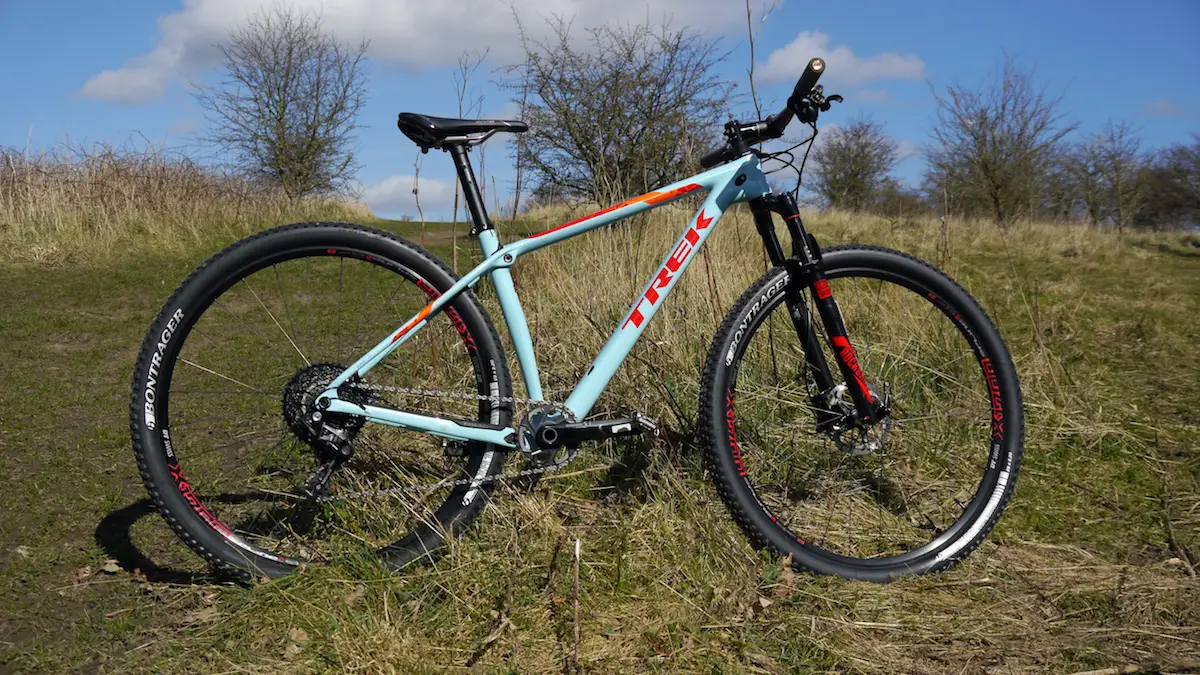
At first glance, you may not spot the technology that Trek has employed in the frame in the form of the IsoSpeed decoupler. The decoupler was initially designed for their road endurance bikes, then was introduced in their cyclocross bikes and now has jumped to mountain bikes too. The decoupler is a combination of bearings and bushings at the seat tube-top tube junction, which allows the seat tube to flex forwards/backwards.
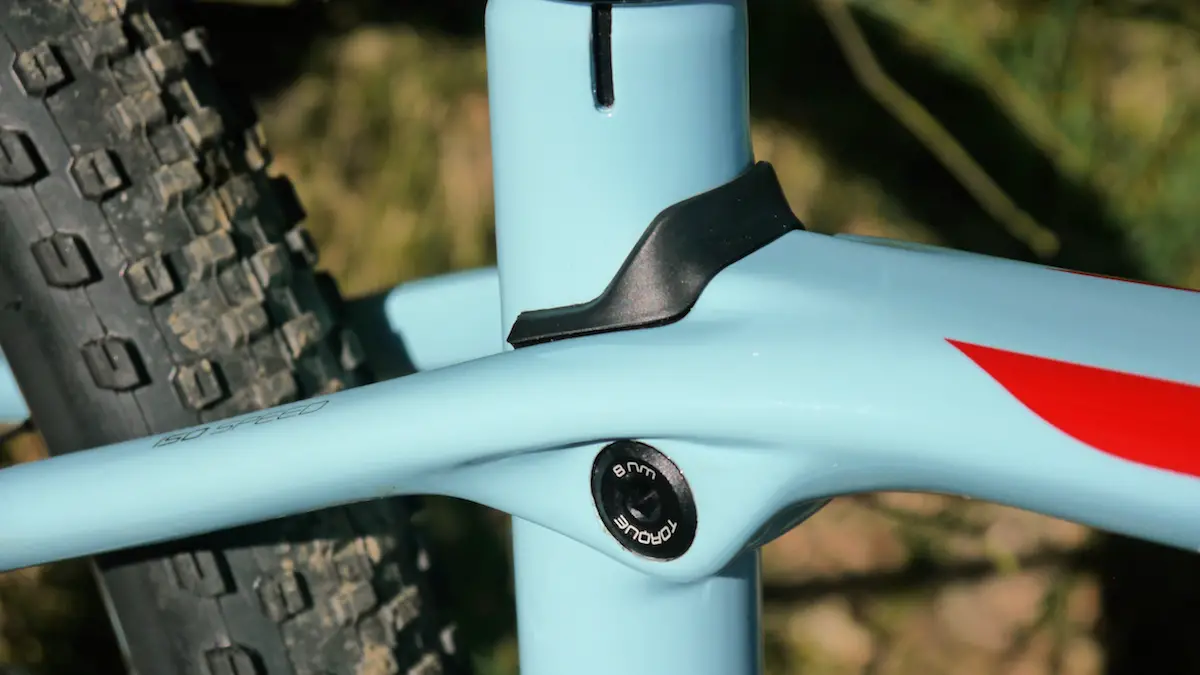
At a claimed 1,012g for the 17.5in model, the frame is as light as many road frames, but offers a level of compliance/comfort other carbon race frames could only dream of. The maximum movement is only 11mm, but the built-in flex really takes the edge off small bumps when riding. It only works when seated (it’s locked out when standing) and there is no bobbing – just rocketship acceleration. The short 435mm chainstays mean the Procaliber climbs really well too.
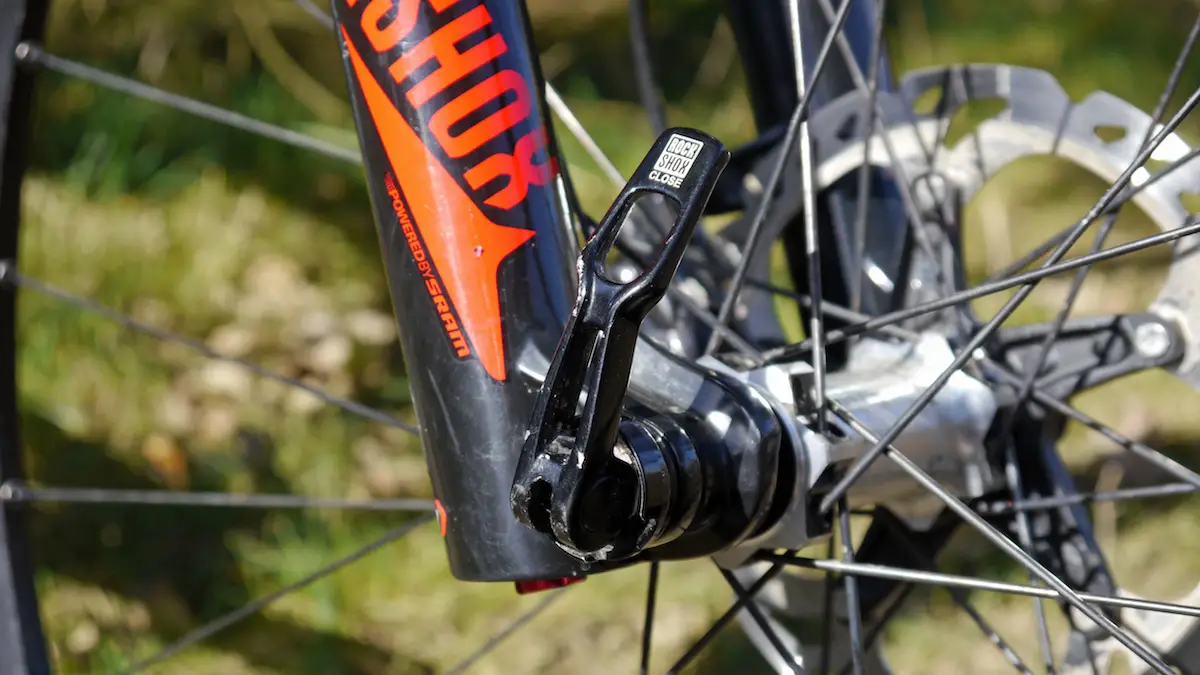
Trek has fitted a Rockshox SID SL fork with a custom G2 geometry fork (to aid slowspeed landing). The fork is Boosted to fit a stiffer 110mm front hub, and it is fitted with a slick remote lockout on the handlebar where the front shifter would normally be.
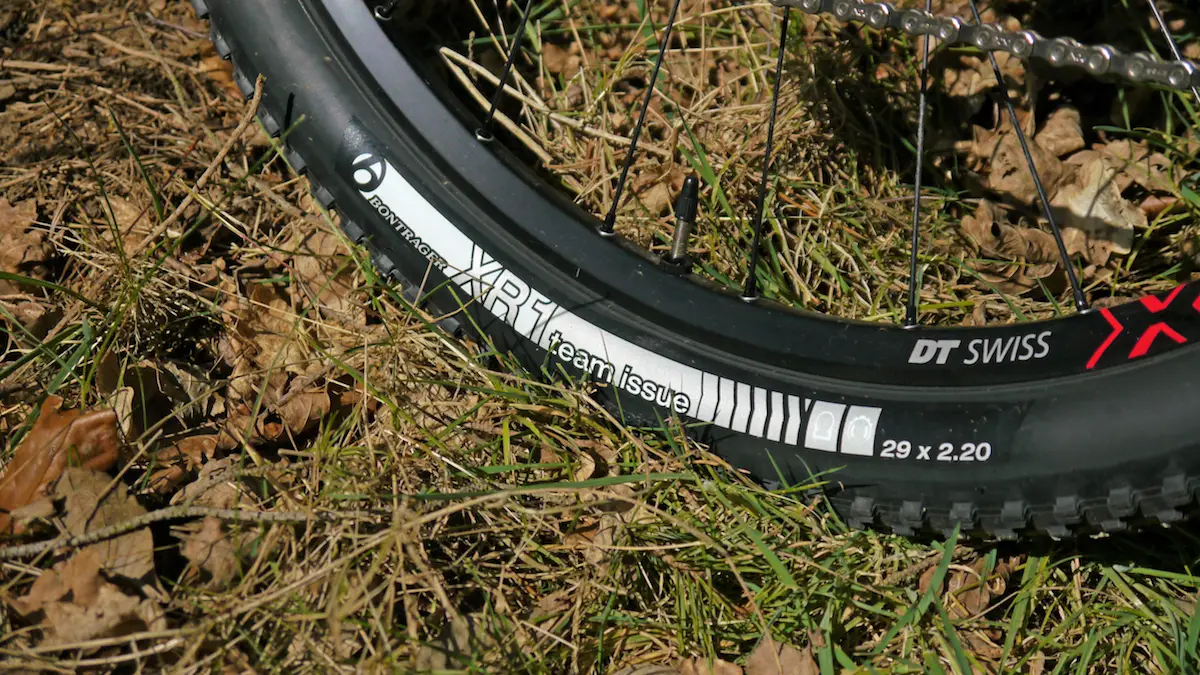
The Trek’s DT Swiss Boost 110/148 wheels were fitted with Bontrager XR1 Team Issue 2.2 tyres and came set up tubeless for us by Trek, complete with sealant. The tread is pretty minimal, but run at pressures of around 22-25psi they strike the perfect balance of grip versus speed.
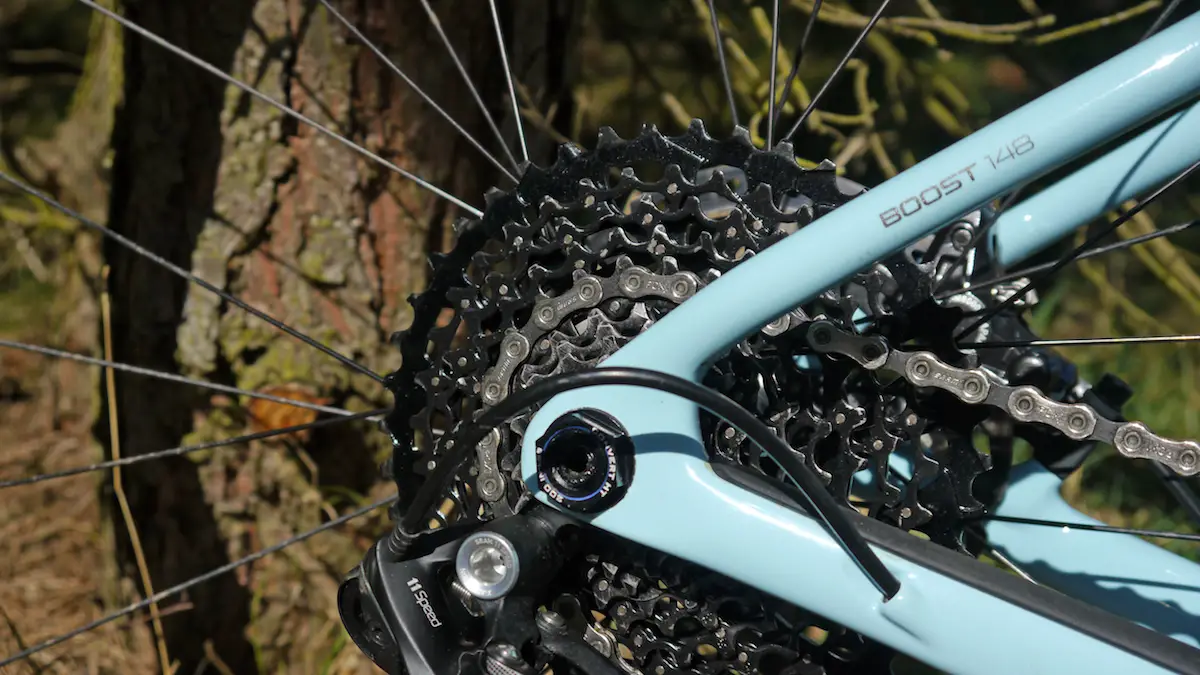
Neither of the wheels’ bolt-thru levers were that great. The front RockShox Maxle was made of soft alloy that started to show signs of wear after only a few uses. The rear DT Swiss ratchet lever was quite slow to use and rubbed on the seatstay at the 10 o’clock position. You could change both of these to the latest generation of Boost compatible Maxle levers, but at a combined retail cost of nearly £90 it’s not cheap!
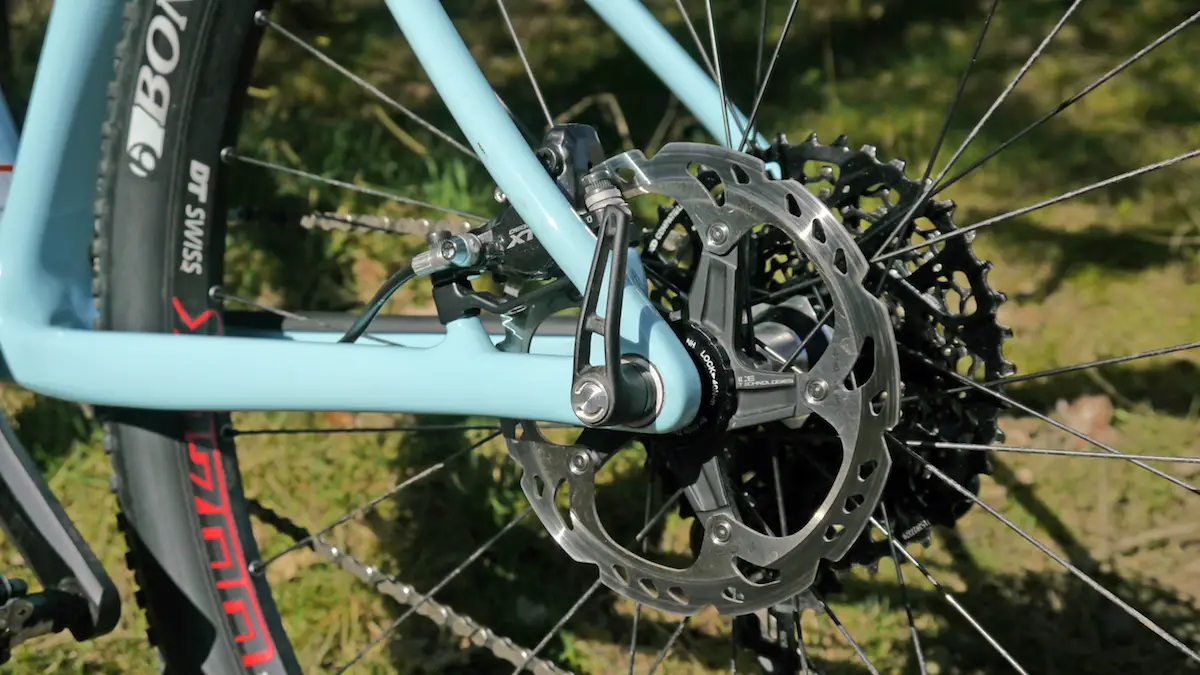
The cockpit set-up on the other hand was perfect. Bontrager-branded carbon bars strike the right balance between absorbing shock and not flexing too much. The stem was the perfect length and the short headtube and small stack of spacers placed the bars at the perfect height for the arse-up-head-down cross-country racer type.
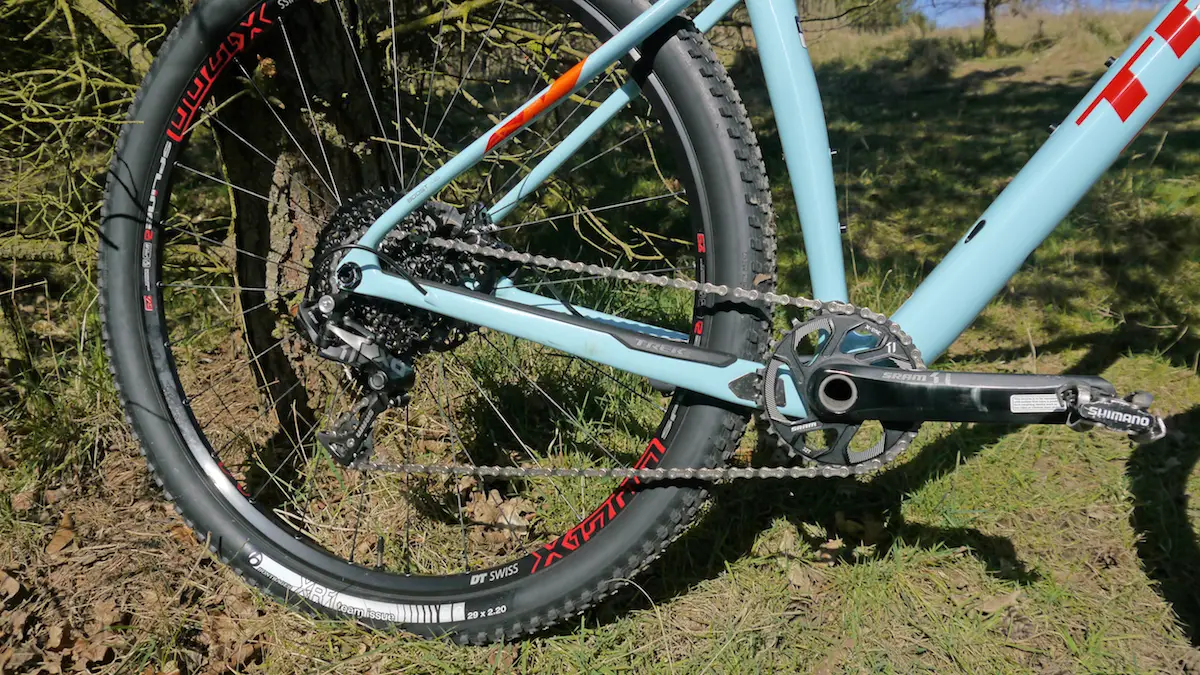
The SRAM X01 rear mech and X1 shifter felt less polished than the Shimano XT on the other bikes. The ergonomics of the shifter buttons take quite a while to get used to and you can’t shift two gears simultaneously, unlike XT. However, despite the clunky feel, the rear mech shifted perfectly. The range was spot on too – it initially felt odd to have a single front chainring compared to the double on the other bikes, but the wide range 10-42T cassette meant it didn’t really lose out at either end of the shifting spectrum. On very steep climbs a slightly easier gear would have helped, but it wasn’t a big problem.
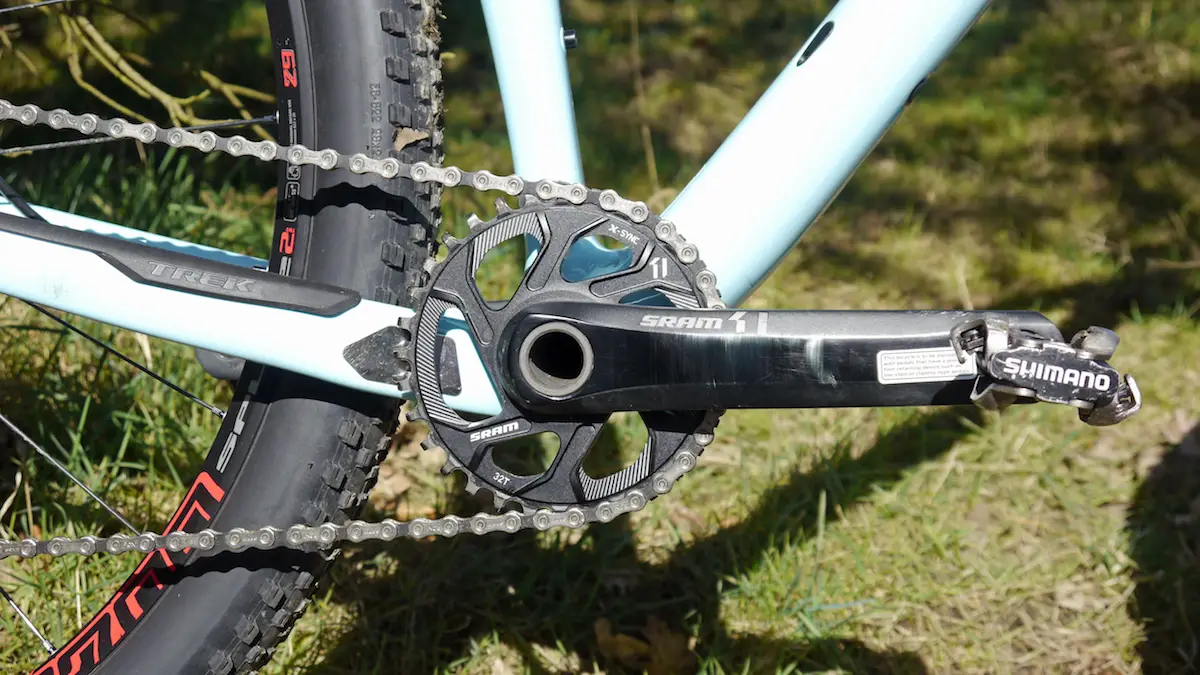
The Ride
This bike is crazy fast! The IsoSpeed decoupler does a great job of taking the edge off the trail ‘buzz’. You can ride rooty/lumpy trails sitting down at full speed without the normal shock waves of vibration going straight up your spine. When you stand up to sprint or climb, the system is essentially locked out and you have a hardtail again. Of course, with only 11mm of maximum compliance, this is not a super cushy full-suspension rig, but then when you stop riding and pick it up, you realise it’s an impressively light 10kgs/22lbs.
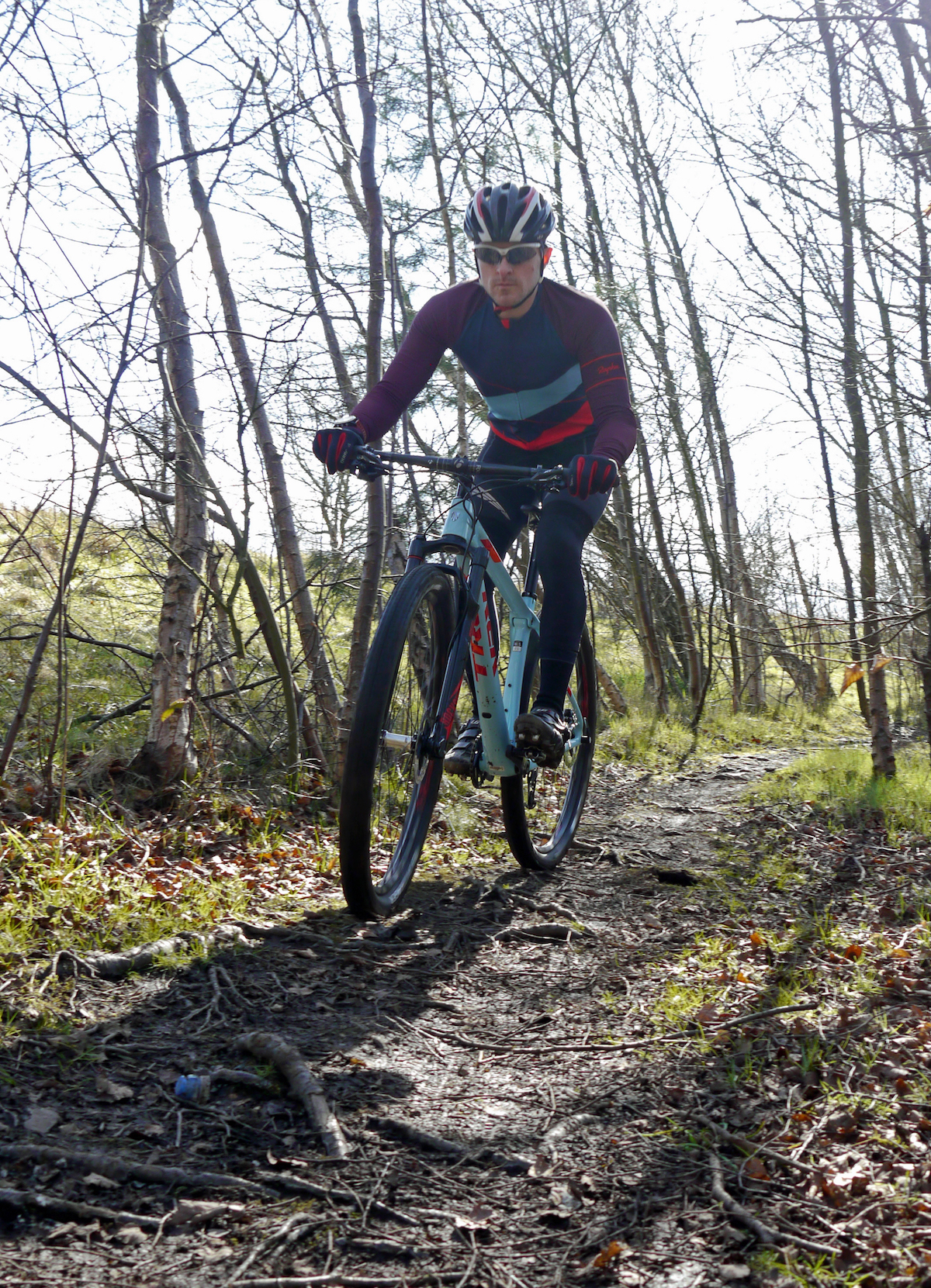
The general opinion of the testers was that this bike shone. The light overall weight, stiff wheels, superfast tyres and vibration damping frame design mean the Trek is a joy to ride. If you have any ambition to hurtle towards the horizon with lactic acid coming out of your eyes and your friends left in your wake, then this is the bike for you.
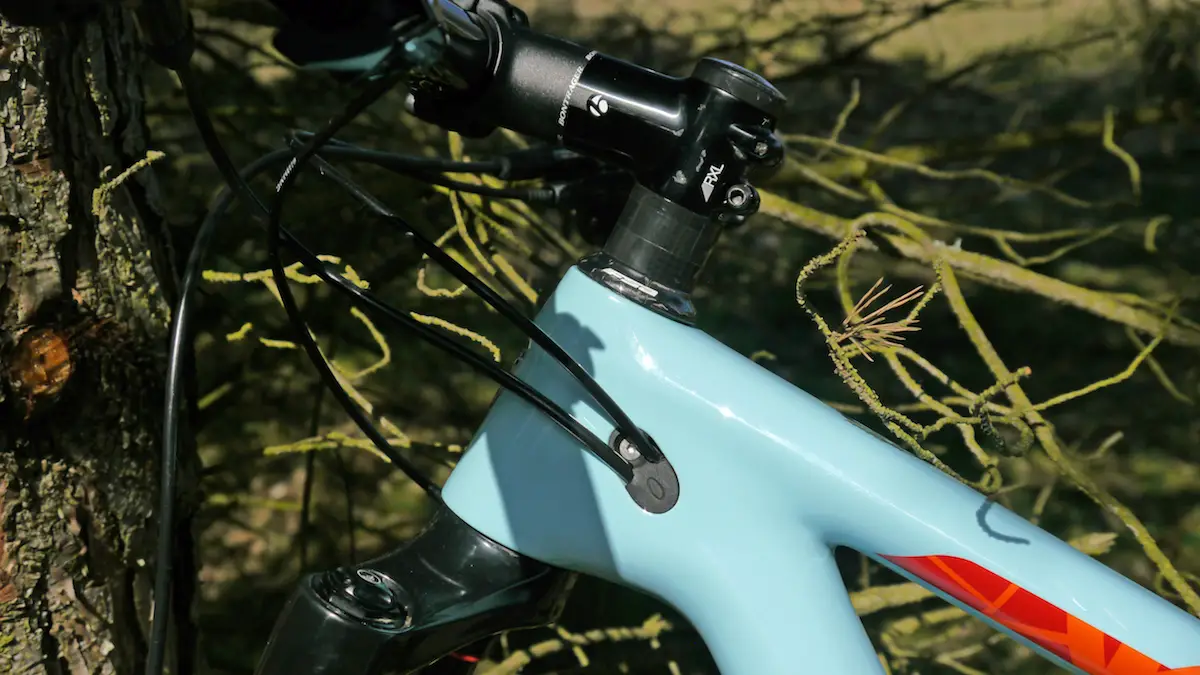
Overall
If this was Crufts rather than a bike test, the Trek would win ‘Best in Show’. It’s mind-blowingly fast and brings out the speed demon in everyone who climbs aboard. The purchase price is quite high considering the slightly lower level of componentry than the other bikes and there were a few niggles with the wheel bolt-thru skewers, but those are pretty minor beans when you consider how brilliant this bike is to ride. A number of the test riders were so smitten by this bike that they’re keen to buy one of their own and that’s about as glowing a recommendation as you can get.
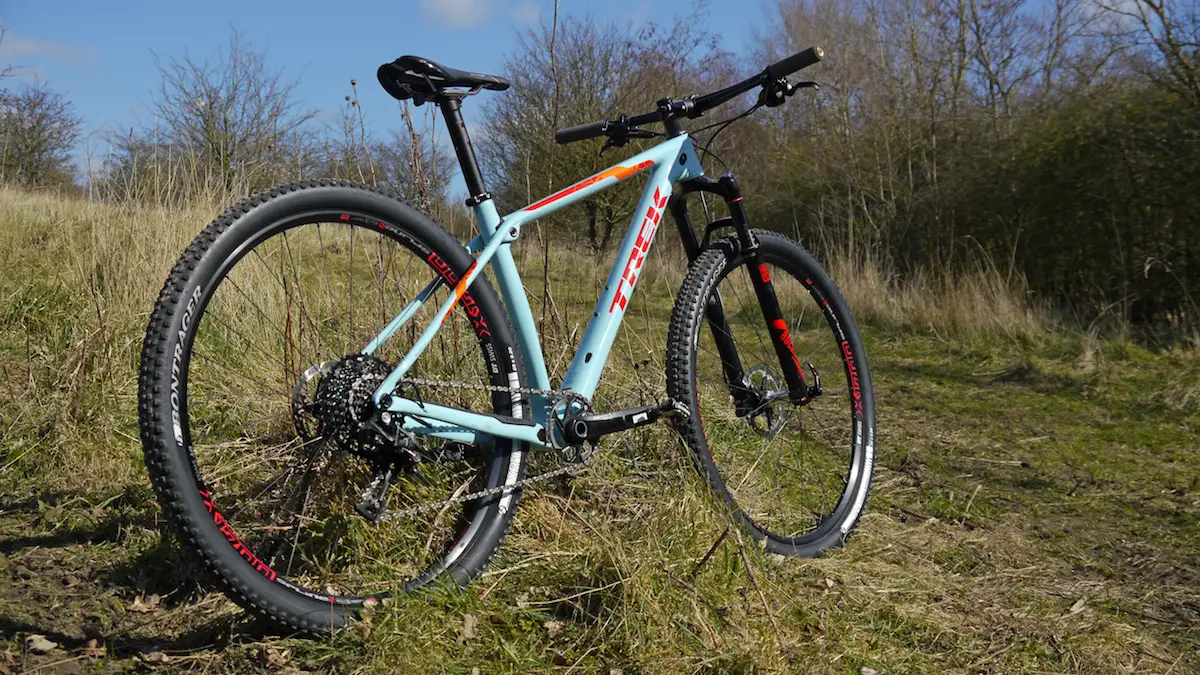
Trek Procaliber 9.8 SL Specifications
- Frame // OCLV Mountain Carbon
- Fork // Rockshox SID SL with G2 geometry, 100mm travel, Boost 110 width and remote lockout
- Hubs // DT Swiss X1700 in Boost 110/148 fitting
- Rims // DT Swiss X1700
- Tyres // Bontrager XR1 29×2.2, set up with tubeless rim strips, tubeless valve and sealant.
- Chainset // SRAM X1 1400 with a single 32t chainring
- Front mech // n/a
- Rear mech // SRAM X0-1
- Rear shifter // SRAM X1, 11 speed
- Cassette // SRAM XG-1175, 10-42 11 speed
- Brakes // Shimano XT with 160mm rotors front and rear
- Stem // Bontrager Race X-Lite
- Bars // Bontrager Race X-Lite OCLV carbon
- Seatpost // Bontrager Rhythm Elite
- Saddle // Bontrager Montrose Elite
- Size tested // 18.5”
- Sizes available // 15.5”, 17.5”, 18.5”, 19.5”, 21.5”
- Weight // 22lbs/10kg





